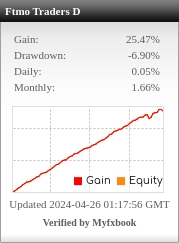
The financial market landscape continues to evolve, and one of the sectors that have grown significantly in importance is proprietary trading firms. Understanding how these firms work and what you need to know can be crucial for anyone interested in finance. In this article, we will provide a comprehensive overview that includes the fundamentals, working mechanisms, benefits, challenges, and a few success tips for those considering diving into the world of proprietary trading.
What is Proprietary Trading?
Definition and Overview
Proprietary trading, often referred to as prop trading, involves financial firms trading stocks, bonds, commodities, derivatives, or other financial instruments using their own money instead of clients’ funds. The principal objective is to maximize profitability through trading activities directly benefiting the firm.
How These Firms Operate
Prop trading firms utilize various sophisticated and complex strategies to generate significant returns. These strategies may include:
- High-Frequency Trading (HFT): Utilizing advanced algorithms and superior technology to execute a large number of orders at ultra-high speeds.
- Market Making: Quoting both a buy and a sell price in a particular security, aiming to capture the bid-offer spread.
- Arbitrage: Exploiting price discrepancies between similar or identical financial instruments on different markets or forms.
Business Model of Proprietary Trading Firms
Revenue Generation
The primary source of revenue for proprietary trading firms comes from the profits generated through their trades. Since these firms use their capital, they avoid the complexities of client relationships that traditional investment firms manage.
Key Strategies
Statistical Arbitrage
Statistical arbitrage involves sophisticated mathematical models to identify anomalies or inefficiencies in financial markets. This strategy often relies on the short-term holding of various securities.
Event-Driven Trading
Event-driven trading capitalizes on the anticipated movement in the stock price of companies undergoing significant events such as mergers, acquisitions, or restructures.
Technology and Tools
Advanced Trading Platforms
Proprietary trading firms invest heavily in state-of-the-art trading platforms, enabling them to execute trades at lightning speeds. These platforms are essential for high-frequency and algorithmic trading.
Risk Management Tools
Effective risk management is crucial for prop trading. Firms employ a variety of tools and software to monitor and manage risks comprehensively.
Challenges in Proprietary Trading
High Competition
The proprietary trading sector is intensely competitive, with numerous firms and individual traders vying to capitalize on market opportunities.
Regulatory Scrutiny
Prop trading firms must navigate a highly regulated environment, adhering to various rules and regulations that aim to maintain market integrity.
Market Risks
Like any trading activity, prop trading involves market risks. Firms can incur substantial losses if trades do not go as planned.
Benefits of Working for a Proprietary Trading Firm
Performance-Based Compensation
Traders at prop firms typically receive compensation based on performance. High profitability directly translates to increased earnings.
Skill Development
Prop trading offers a fertile ground for skill development in technical analysis, quantitative finance, and risk management.
Access to Cutting-Edge Technology
Working at a prop trading firm provides access to cutting-edge technologies and trading platforms, further enhancing trading capabilities.
How to Get Started in Proprietary Trading
Educational Background
Having a background in finance, economics, mathematics, or computer science is often advantageous but not strictly necessary.
Building a Trading Record
Creating a track record of successful trades can significantly boost your prospects. Use demo accounts or smaller amounts of personal capital to hone your skills.
Networking
Networking within the financial industry can open doors to proprietary trading opportunities.
Conclusion
Proprietary trading firms represent a dynamic and often lucrative segment of the financial markets. Their unique nature—trading with their capital, high potential for profitability, and sophisticated strategies—sets them apart. By understanding their workings, aspiring traders can better prepare for a career in this exciting field. Whether you’re interested in technology, statistical models, or event-driven strategies, proprietary trading offers a broad spectrum of opportunities to explore and excel.




